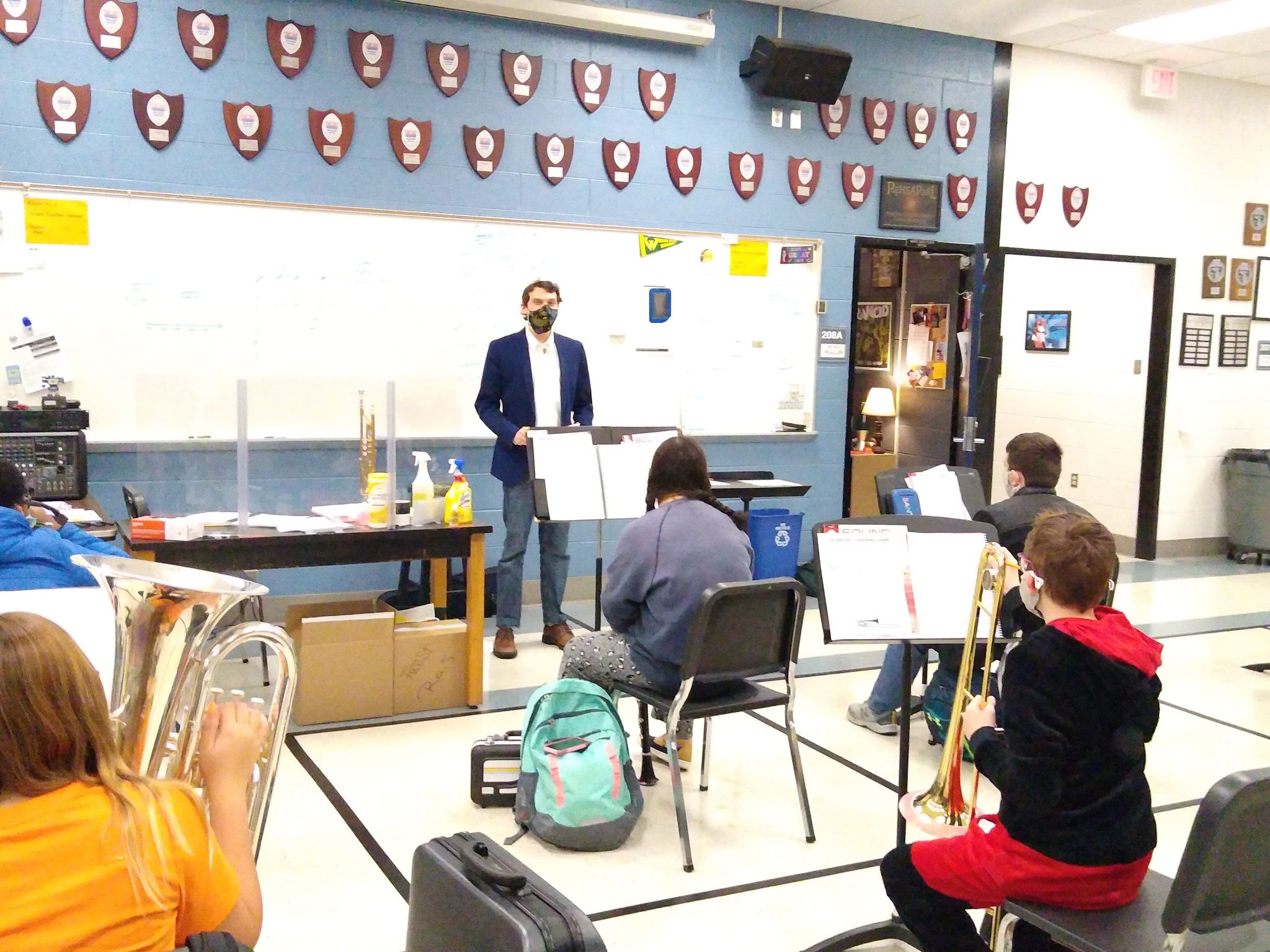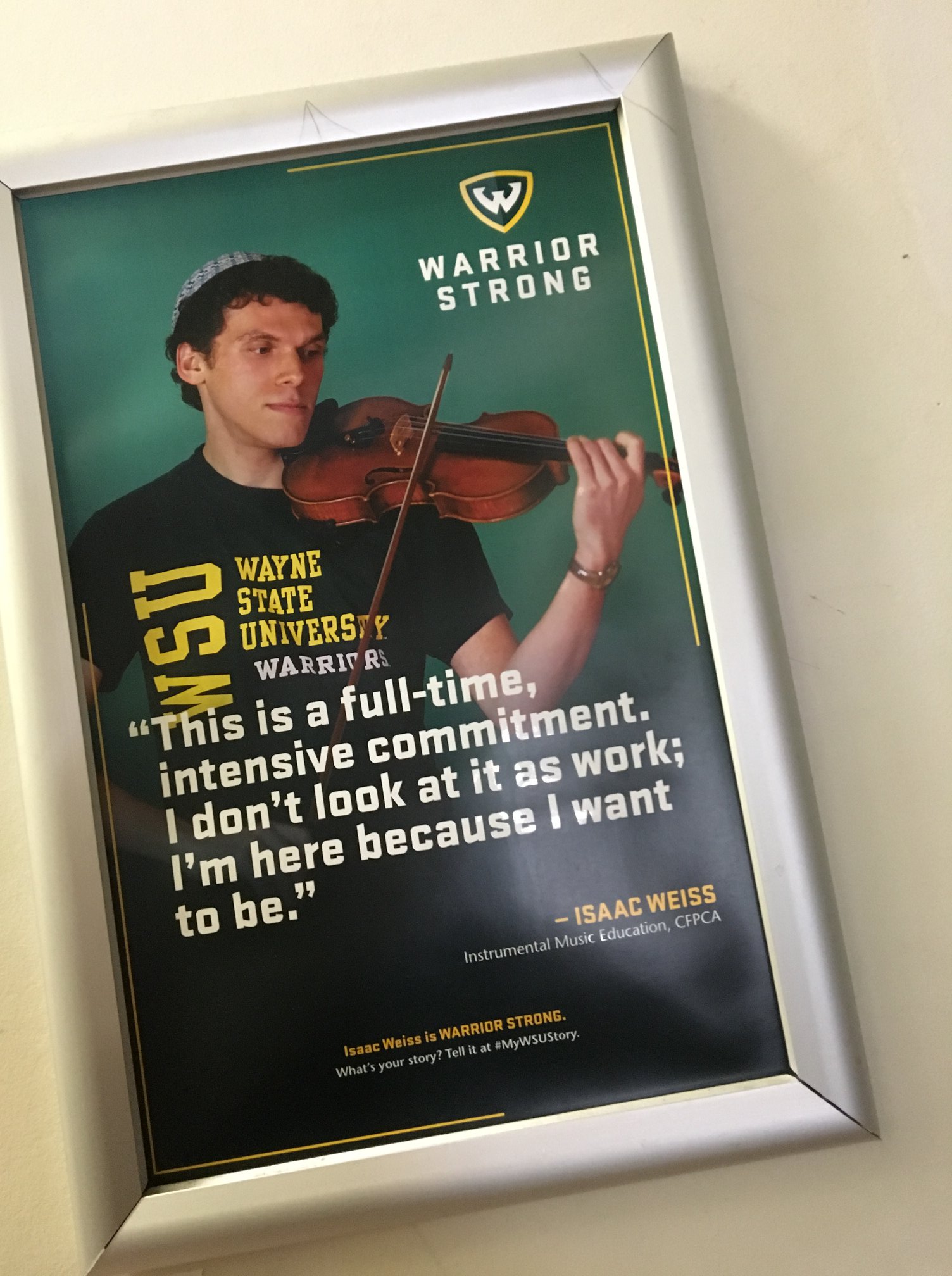About Mr. Weiss
Hi! Thanks for stopping by. My name is Isaac Weiss, and I'm a passionate humanistic music educator. I graduated summa cum laude from Wayne State University, where I founded the Campus String Orchestra, a registered student organization that serves as an educational ensemble for non-music majors. While deeply involved in campus leadership, I maintained a 4.0 GPA and graduated with both Departmental Honors, within the Department of Music, and University Honors, through the Irvin D. Reid Honors College. I completed my student teaching during the height of the COVID-19 pandemic.
I studied composition and orchestration as well, and have written a number of works for school band and orchestra.
I am also a front-end web developer (see this site!) and an open-source contributor to MuseScore. I was selected for Google Summer of Code 2020, and completed a self-designed project to extend the capabilities of the world's most popular music notation software.
My résumé is below. Please contact me with absolutely any questions about anything if you like what you see below. I'd love to hear from you.
Résumé
Philosophy of music education

Learning cannot happen without internal motivation on the part of the learner. Wanting to get good grades is not the same as wanting to learn—students quickly forget material they were not interested in after the exams are done. Therefore, the first concern of teachers must be fostering their students’ desire to learn—to ascertain the students' level of interest, and, if it is low, figure out how to show them that the given subject is fascinating and enjoyable.
With music, that full participation and focus are not out of reach. Since it is a non-core class, students usually sign up for it voluntarily. Its value is obvious; most people use streaming services, radio, or other media to listen on a regular basis.
But the most important thing about music education is what it does for social-emotional development. It creates community: without thinking about it, students collaborate as an ensemble to accomplish something impossible for the individual. It promotes self-efficacy: the students can tell they are mastering a complex skill. And the depths of its emotional power are unknown: music affects the brain in ways that baffle neurologists.
We music educators know that in our field we sometimes touch the ineffable. We have the responsibility to elevate our students to experience this as often as possible, and not only make music class the best part of the school day, but inspire a lifelong joy of music within our students.

Journey to teaching
When I was seventeen, the music director of the homeschoolers' orchestra I played in was unexpectedly hospitalized. His recovery was slow. As the families scrambled to fill the void and keep the four band and orchestra classes he taught going, it fell to me, as the then-concertmaster of the advanced group, to take over the beginning strings class. For the remainder of the semester, they were my responsibility. I had no training or pedagogical knowledge, but I got them through and conducted them in concert—and I loved the whole experience.
As the child of two professional educators (elementary school and university) who chose the unschooling philosophy to raise their children with maximum freedom to explore their interests, I was privileged to grow up with an incredibly rich and diverse education. Music was one of my major interests, and it took me into the public school environment (Pioneer High School in Ann Arbor) for orchestra, band, and music theory classes in my teens, in addition to numerous outside youth ensembles.
The various music teachers I learned from through all of these experiences struck me as some of the most hardworking and caring people I knew, as passionate about their art as about nurturing their students.
As I grew older and found opportunities to teach, I found I, too, had a passion for helping young people share in the joy of music. Devoting myself to it professionally seemed the obvious choice. I have never looked back.
Professional strengths
As a humanistic educator, I place the highest value on the well-being of my students. They are people who matter, not just a collective "class" or mass that I interact with as a group; each deserves to be viewed as a holistic being, not just as a "student" who needs to do well in school. The content I teach is valuable only because it can enrich their lives. I am responsible for helping each one grow as a person, not just as a musician.
I've always been accustomed to working with people of all ages and backgrounds, given my extraordinary upbringing, and I can draw on my personal experiences to remember how things looked to me when I was younger. As a result, I have found myself able to work comfortably with almost any kind of student, adjusting to meet their learning style. I pay attention to learning where they're coming from and understanding their thought processes; this is part of recognizing them as individuals, and I care, anyway.
Above all, I hold myself to the highest standards. When I make a commitment to do something, I am never satisfied with doing a job of mediocre quality. My love of learning is deeply ingrained; I take pleasure in constantly improving my mastery over new challenges. I have the work ethic to move mountains on students' behalf and sufficient passion for the subject matter to make it interesting to anyone. I try to learn whatever I can from every experience, and I expect I will never stop finding new ways to improve my professional practices.
